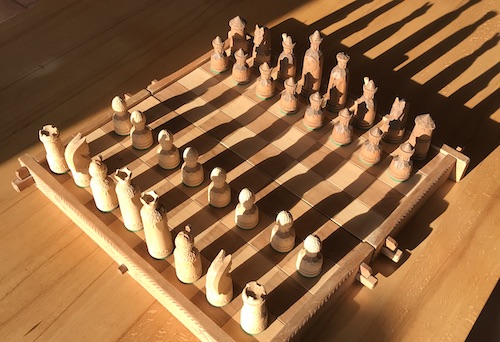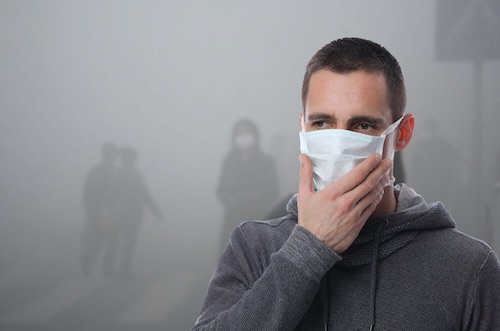Below you will find a selection of the most recent entries from bloggers in our Family/Health section. To view the entries from individual bloggers, click on the links below:
- Mirsada Hoffmann Thriving Global Family: Supports parents raising children across cultures—helping families build emotional resilience, strengthen connection, and find steadiness in the face of change.
- Lee Eldrige The Athlete Tribe
- Dr. Michelle Wright Dr Michelle Wright is a British-trained General Practitioner and Director of HealthFirst, providing physical First Aid training and Mental Health First Aid training, as well as Health Education, throughout Switzerland (www.healthfirst.ch). She also has a regular radio show about health on World Radio Switzerland. Believing that prevention is better than cure and that we should be treating the root cause of illness, Dr Michelle is also a Lifestyle Medicine enthusiast.
- Birgit Suess is a Swiss-American who grew up between the US and Switzerland and speaks English, German and Swiss-German. Because of a worldwide shortage of Speech Therapists, she uses technology to connect special needs students around the world with English speaking Speech Therapists. With almost 20 years of experience as a Speech Therapist and 10 years experience with Teletherapy, she is a pioneer in the Teletherapy world. Her personal specialty is working on social language with high functioning children on the Autism Spectrum. Her passion is finding new and innovative ways to help children with special needs.
- Dr. Irina Schurov is a Nutritional Neuroscientist with a PhD from Cambridge University (UK) and over 20 years’ experience in science and health-providing services. She created and founded LiveRight, an initiative to help others through nutrition and wellbeing strategies. By building an educational platform around healthy eating habits, by restoring the relationships between people and food, by supporting your individual circumstances and through personalized coaching in nutrition, she wants to help you and your family achieve the optimal balance between help and life.
- Dr. Penny Fraser is a British-trained Emergency Medicine doctor, who lives in Geneva. She is also the mother of two busy little skiers aged 7 and 8. Along with Dr Michelle Wright and her other colleagues at HealthFirst, she has a passion for delivering health education and First Aid training to the English-speaking community in Switzerland

A hybrid form of working is going to be the new norm for most people. Both working in offices and at home can have challenges for productivity. For example, open-plan offices are ineffective for concentration, as it is so easy to get distracted or engaged in unproductive activities.
Depending on your role and/or company, working from home will hold a large percentage of your time. So, how do you create an environment to optimise your productivity?
Have a workspace
When the first lockdown hit, there was a rush to find a workspace in the home - kitchen tables, desks in bedrooms, working on the kitchen breakfast bar, etc. Now we have the time to plan this space and become creative around the function. Try, if possible, to keep this workspace out of the bedroom. The bedroom is a dedicated space for sleep and recovery. Invest time and money into the interior; this is your opportunity to personalise the area.
Try to make sure that the room is as light as possible, as exposure to natural light help maintains our body's natural rhythm, allowing us to feel awake during the day and help us fall asleep at night.
Spend time picking a desk and chair
Investing money into a suitable desk and chair is going to be vital for productivity. Ideally, this desk needs to be one that can also turn into a stand-up desk, as sitting all day is seriously harmful to our health and wellbeing. Of course, you do not need to stand all day. I like the idea of odds and evens. Evens you sit and odds you stand. Changing your position every day helps.
Also, make sure that your screen is just above the eye line to help with energy; looking down can make us feel sleepy.

by Lee Eldridge, The Athlete Tribe
We all have stress. We all need stress. It does not matter what job we have, our family situation, our personal life, or our training programme. Stress is around us.
Stress is essential to change us as human beings. We either adapt to the stimulus that is put in front of us, or we don't. Some people argue that it is not the fittest who succeed; it is the most adaptable. I would say both.
Therefore, it's vital to think about stress-coping methods, such as:
1. Improving stress resilience
2. Improving stress management
High levels of stress can ultimately cost companies profits, jobs and lives (in the extreme).
If we think about it, there are two ways to reduce this, either become better at handling stress or reduce/manage stress. Let's start with stress resilience.
Stress Resilience
How much stress can you take? This can be a very open question to answer. Is it the amount of stress you can take but still keep performing, or the amount of stress you can take and survive?
We need to understand the two situations and recognise which one we are in. Think about professional sport — in and out of season: stressful games or stressful training.
As an athlete, it is impossible to keep training at preseason levels all year round. Otherwise, there would be an increased risk of injury and a drop in performance. Therefore, we design into the programme deload weeks to allow the body to recover.
In-season we are looking to make sure that we are ready for the competition. We can still develop an athlete, but the priorities switch to games/the event.
Now relate that to your situation.
How can we be expected to work on high-pressure projects all year round? It's impossible. We need to build in deload weeks and the opportunity to adapt.

Dr Mecky McNeill, HealthFirst
How to up your game by taking a leaf out of the book of the chess Grand Masters – the greatest mind athletes of them all!
For me, with universities and schools in the UK currently working online, one of the blessings of the COVID-19 pandemic has been that my older children are back at home. Spending time with them is not only a pleasure, it is an opportunity to learn!
My son recently shared an article with me that he thought I would be interested in from the pages of one of his passions: sport. On reading it, I learnt that a chess player can burn up to 6000 calories in a single match. How can someone who sits in a chair for 8 hours or more and lifts only their arm to move a chess piece spend so much energy? The simple answer is stress.
Stress is a physical, emotional, and cognitive reaction so many of us know well. It drives up our heart rate, our blood pressure, causes tension in our muscles and impacts our breathing. In fact, our whole body and mind goes into a state of calorie consumption overdrive when we are stressed.
After a tournament, Grand Masters visibly lose weight. Because of this, these elite mind athletes now train like their physical athlete counterparts to prepare for their matches, all to ensure top performance. Daily routines include hours of physical exercise, stretching, and weightlifting to ensure muscle strengthening, alongside a rigorous nutritional regime - especially in the lead up to a game. On top of that, sleep is fundamental.
So, what can we learn from these mental and cognitive geniuses? Sadly, 8 hours at my desk has not yet proved a successful weight loss strategy – in fact, quite the opposite! And we all know that feeling of being drained and exhausted after a long day of demanding challenges in front of our screens, perhaps now more than ever.
We have all (I hope!) heard of the benefits of exercise, regular breaks, a healthy balanced diet, 7-9 hours of sleep every night, down-time, spending time with family and friends, mindfulness, and meditation. And I am sure we would gladly like to attend to them all, every day. But then there would simply be no time left to work!

By Dr Mecky McNeil, HealthFirst
November is probably the most challenging month of the year. The turning back of the clocks, and with it the shorter days, signifies winter is around the corner. This year, the days feel even darker than usual, as we are facing the greatest health crisis of a lifetime. But alongside Covid, we are also experiencing a mental health pandemic. More than 1 billion people globally are suffering with mental illness. This is being further impacted by isolation following quarantine and the need to socially distance and wear masks to reduce the risk of infection.
Every November since 2003, Mo Bros across the world have been growing moustaches and setting themselves challenges to raise awareness of men’s health issues.
This year alongside raising awareness of prostate and testicular cancer, they are addressing men’s mental health and suicide. Their target is to reduce premature death in men by 25% by 2030.
One man dies every minute from suicide across the world. In England 1 in every 8 men suffer from a mental illness including anxiety, depression and obsessive-compulsive disorder (1), and men are 3 times more likely than women to have an alcohol use disorder (2). These numbers are the tip of the iceberg as they only represent the cases reported and diagnosed.
Gender stereotypes and society’s expectations mean that many men do not feel able to speak out about how they are feeling, leading them to look for other ways to cope. Self-medicating with alcohol to reduce their distress and withdrawing from others for fear of judgement are sadly common outcomes.
In their moment of need, many men simply do not know who, or where, to turn to. The reduced inhibitions from using alcohol in this moment of crisis, means thoughts of suicide may seem the only option. Sadly, this dangerous cocktail can lead to someone acting on these thoughts and the devastating outcome of a premature and avoidable death.

By Dr Michelle Wright, HealthFirst
In Europe, around half of us will experience mental distress at some point in our lives, with depression and anxiety the most common diagnoses. But despite being so common, talking about mental health remains taboo and there is still a lot of misunderstanding, uncertainty, fear and stigmatization surrounding it.
Many people are not well informed about how to recognize mental health problems, how to respond to an affected person, or about the treatments available. In addition, because of worries about being perceived as weak, taking the step to open up to others about their own mental health isn’t always easy for someone.
To try to tackle these issues, the Pro Mente Sana Foundation, with support from the Beisheim Foundation, has recently launched the internationally recognized Mental Health First Aid program in Switzerland. Here it’s called ‘ensa Mental Health First Aid’, ‘ensa’ meaning ‘answer’ in one of the Aboriginal languages and being translatable in German, French, Italian and English. HealthFirst is proud to be recognized as an ensa Partner, providing certified ensa Mental Health First Aid courses in English throughout the country.
The program, originally developed in Australia, trains and empowers lay people to provide initial support to others who may be developing mental health problems, experiencing worsening of existing mental health problems, or who may be experiencing a mental health crisis. It’s essentially a First Aid training programme with similar principles to those for physical First Aid but this time for mental health.
Any interested person who wants to learn how they can support family members, friends or colleagues experiencing mental health difficulties can become a Mental Health First Aider. No healthcare background or pre-requisite training is necessary.






